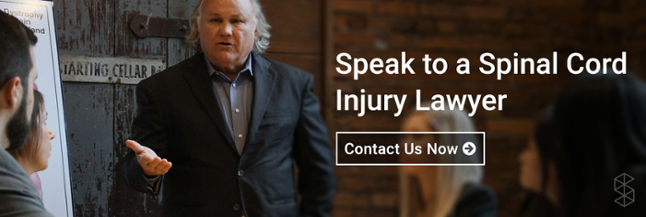Anna & Josh Want to Fix a Huge Medicaid Flaw for Disabled Workers
No matter where you go in the world, every college student dreams of landing the perfect job. But for students and people with disabilities who depend on Medicaid to cover the costs of their daily caregivers, they are at risk of losing what they require most – the assistance they need to complete their daily living activities - if they get a job.
In each state the maximum amount that people with disabilities on Medicaid can earn varies, but time and time again full-time workers with disabilities are running into the same issue - having to choose between work and having caregivers. Paying for caregivers out of pocket is simply not possible for most, as the cost would negate many people's wages.
But we see a tide-change coming. In the last six months, there have been two news stories that went viral on this subject. Anna Landre, a college student from N.J., was in the news, as was Josh Basile, a quadriplegic and attorney from Maryland. Read on to discover these how these two went viral, and are helping hasten the change to these outdated laws that we desperately need.
Anna Landre: College Student Faces a Reality Check
 Signing on for a paid internship is every college student’s goal their senior year, but for Anna Landre, a student at Georgetown University, she ran into an issue she wasn’t prepared for – if she accepted the internship she would lose several hours of PCA care each day. With spinal muscular atrophy type 2, she has limited use of her arms and none of her legs. Her NJ Medicaid currently pays for 16 hours of care each day. Without it, she would not be able to live her life independently at her dorm.
Signing on for a paid internship is every college student’s goal their senior year, but for Anna Landre, a student at Georgetown University, she ran into an issue she wasn’t prepared for – if she accepted the internship she would lose several hours of PCA care each day. With spinal muscular atrophy type 2, she has limited use of her arms and none of her legs. Her NJ Medicaid currently pays for 16 hours of care each day. Without it, she would not be able to live her life independently at her dorm.
A paid internship at Washington D.C.'s public relations firm Weber Chandwick paying $14 an hour is what brought all of this to light. Up until this point, Anna was unaware of the changes to her health care coverage when she began to make an income. Unfortunately, this shock is what keeps many people with disabilities away from working.
New Jersey has a provision in the law called WorkAbility that attempts to help the situation, by providing a special coverage of Medicaid, but it only provides 6 hours of care maximum to workers with disabilities on the program. For someone with a severe disability like Anna, she would have to pay for the additional 10 hours out of pocket.
10 hours each day would cost roughly $52,000 a year. If her first entry level job out of college is less than $50,000, the incentive for her to work is simply not there.
Fortunately, Anna is an awesome advocate and reached out to Assemblywoman Joann Downey, D-Monmouth, to see if she can help fix this problem not only facing her life, but thousands of other New Jersey residents.
Assemblywoman Downey says she's committed to fixing the problem. She has even promised to go as far as reaching out to the Governor of New Jersey to help Anna. We hope to see legislation coming out of New Jersey in their 2018-2019 legislative session to remedy this situation for everyone in the state. And we hope it comes just in time for when Anna graduates.
Josh Basile: Quadriplegic Attorney Helps Pass Temporary Fix
 For Josh Basile, a C4-5 quadriplegic from Bethesda, Maryland, he hit the cap in the Maryland Medicaid program after working as a lawyer just a handful of years after graduation. In Maryland, workers with disabilities can make up to a certain amount before they are booted out of the system. In the state of Maryland, that number is also $50,000.
For Josh Basile, a C4-5 quadriplegic from Bethesda, Maryland, he hit the cap in the Maryland Medicaid program after working as a lawyer just a handful of years after graduation. In Maryland, workers with disabilities can make up to a certain amount before they are booted out of the system. In the state of Maryland, that number is also $50,000.
Due to Josh's high spinal cord injury level, he only has limited use of his arms, which makes him dependent on PCA services around the clock, including needing help while at work. Last year, he received a letter in the mail saying that he was going to lose all of his PCA services if he continued to make the same income. He was not about to quit his job, so he reached out to people he knew.
Josh is an attorney in the Washington, D.C. area, which also allows him many contacts in the political arena. He utilized these and contacted Senator Susan Lee, D-Montgomery County, to get a temporary law put in place. She sponsored a bill that allows people with disabilities to receive their PCA services while making over $50,000 a year for the next three years.
We need more than temporary laws and politicians to make personal calls to Governors to fix this longstanding problem. We need a massive change in the Medicaid laws in every state to finally allow people with severe disabilities to work worry-free.
Stay Updated on Advancements On Traumatic Brain &
Spinal Cord Injuries
About the Author






